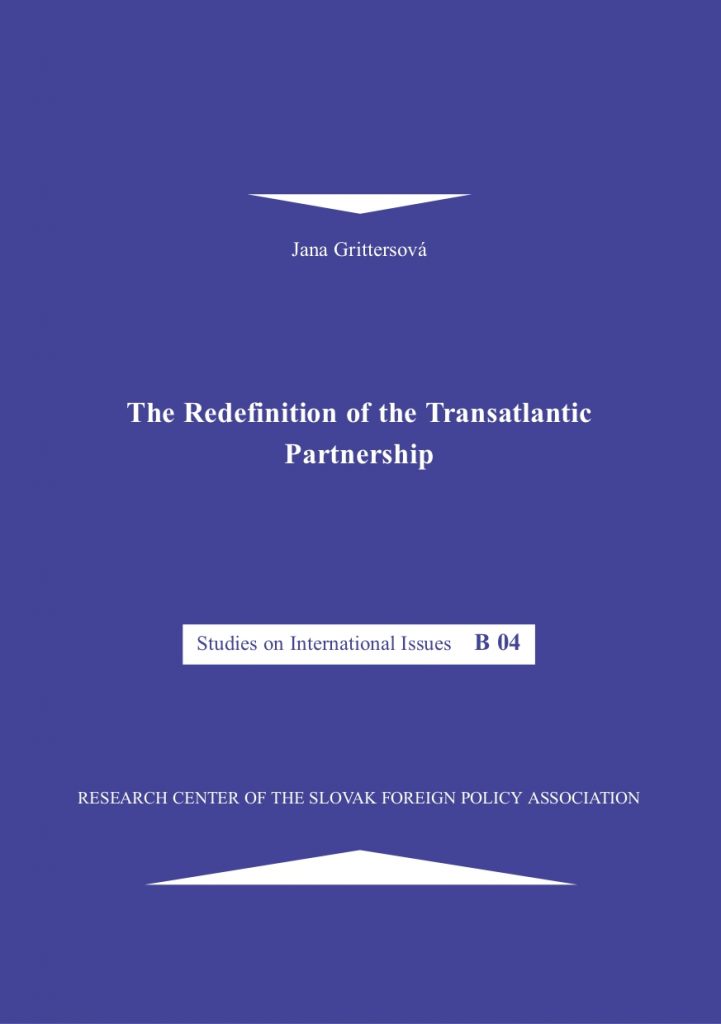The Redefinition of the Transatlantic Partnership

That this paper aims to provide a general picture of the post-Cold war transatlantic partnership, to reveal the major challenges and problems affecting the very existence of this privileged partnership in the new contractual post-Cold War environment, rather than to present a detailed examination of all historical happenings in chronological order. Besides, the purpose of this paper is not to offer prolific scenarios or “grand designs” of the transatlantic relationship in the style of American think tanks. Instead, it should be conceived as an attempt to help understand the empirical development and theoretical conceptualization of the “new” US-EU relationship.
Author: Jana Grittersová

